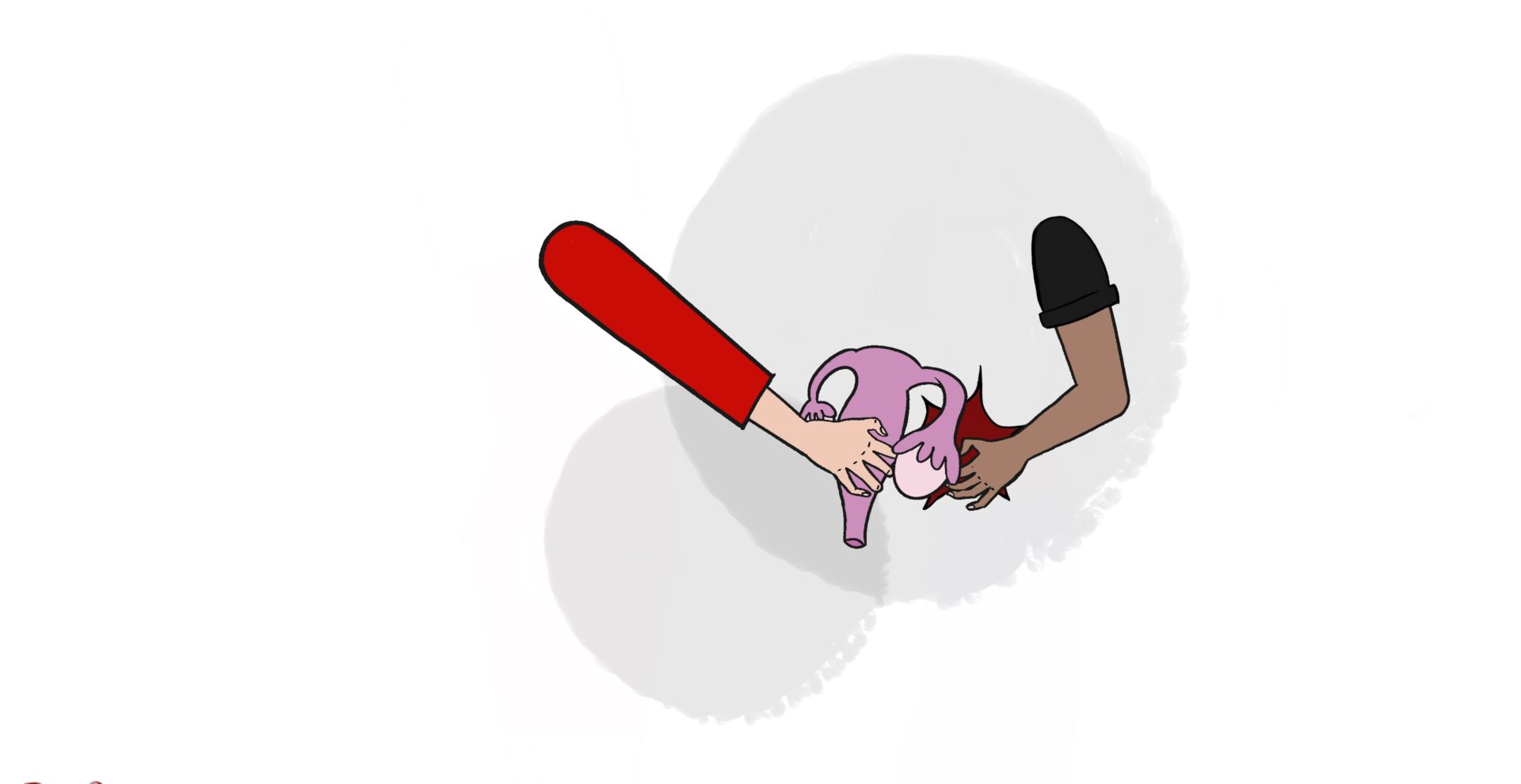
Since U.S. Supreme Court Associate Justice Ruth Bader Ginsburg passed away, I think differently about the coat hangers in my dorm closet. Their twisted wires remind me of the desperation some women with unwanted pregnancies have felt, and still feel today. They remind me of the infections, hemorrhages and deaths from botched self-induced abortions, those that have occurred, especially prior to Roe v. Wade.
Associate Judge Amy Coney Barrett, President Donald Trump’s latest appointee to the Supreme Court, scares me. The impact her rulings will have on lower-income women without access to safe abortion — many of them Black and Latina — scares me.
She has earned herself the Twitter epithet “Amy Coat Hanger Barrett.” In 2006, Barrett signed a St. Joseph County Right to Life advertisement in the South Bend Tribune that called Roe v. Wade “barbaric.” In 2013, she said that public opposition to Roe v. Wade should factor into overturning its precedent. She was still confirmed last Monday, Oct. 26.
Barrett’s anti-choice convictions would not matter if she could remain loyal to the Constitution first and her Catholic faith second. This may not be the case. In a 1998 paper, Barrett criticized former Associate Justice William Brennan for doing just that. Brennan sided with the majority in Roe v. Wade, supporting a constitutional right to abortion during the first and second trimester.
“We do not defend this position as the proper response for a Catholic judge to take with respect to abortion or the death penalty,” Barrett and her co-author wrote.
She raised the question of whether Catholic judges should voluntarily recuse themselves in cases that would cause a crisis in faith.
If nothing else, I admire her honesty about the complications that come with the separation of the church and the state. But, in being chosen by Trump, the self-appointed “most pro-life president,” Barrett recusing herself is impossible. During a 2016 presidential debate, Trump promised his base that his appointees would overturn Roe v. Wade. “That will happen automatically, in my opinion,” he said. Barrett will vote to overturn. She will send the debate over abortion rights back to the states.
One woman’s dishonor is another woman’s preventable death from an unsafe abortion. Moreover, transgender men and non-binary folks choose to have abortions too. When reproductive health spaces acknowledge just cis-women, trans people are at a higher risk of unsafe abortion.
If the Supreme Court overturns Roe, ten states have “trigger laws” banning abortion immediately. These bans would impact LC students from Idaho, Utah, Texas, Arkansas, Kentucky, Louisiana, Missouri, Mississippi, North and South Dakota and Tennessee.
I know that I am lucky. I am unlikely to ever experience the physical and psychological trauma that comes with having no other option but a coat hanger. I live in Washington, where 51 facilities provided an abortion in 2017, compared to just five in a “trigger law” state like Idaho.
Money talks. The $504 average cost of an abortion pill deprives women in poverty of a voice in the fight for accessible abortion. Women without insurance cannot foot the bill for a $1,500 in-office abortion. In this frame of mind, houseless women in Portland, the so-called liberal capital of the United States, do not have the right to an abortion.
Without Roe, people with an unwanted pregnancy, and those who love and respect those people, will pay the price. Black and Latina women will bear the disproportionate brunt of that suffering. In 2008, the abortion rate for Black women was five times that of white women. Access to high-quality contraceptives, which are imperative to preventing abortions, is much lower in Black, Latino, Asian and Indigenous communities. This does not happen by accident. Racial disparities trap these women in unwanted pregnancies.
The Supreme Court is set to determine the constitutionality of abortion bans at six, eight or 10 weeks into a pregnancy. Most people do not become aware of their pregnancy until week five or six of gestation. In other words, a six-week ban is a total ban statewide. Women who live in Alabama or Louisiana, Southern states trying to implement six-week bans, would need to cross state lines to reach an abortion clinic in Florida. Both of these proposed six-week bans provide no exceptions for survivors of incest or rape.
There are still lower-income Americans who self-induce abortions using coat hangers, spending a night in the snow, purchasing unreliable pills online, or throwing themselves down flights of stairs. Rather than making abortion more accessible for the most vulnerable, pro-life Supreme Court rulings and state law will promote disparities in reproductive health. To use her favorite word, Barrett’s appointment encourages this dangerous behavior as the “barbaric” American solution to unwanted pregnancy.
Subscribe to the Mossy Log Newsletter
Stay up to date with the goings-on at Lewis & Clark! Get the top stories or your favorite section delivered to your inbox whenever we release a new issue.

Leave a Reply